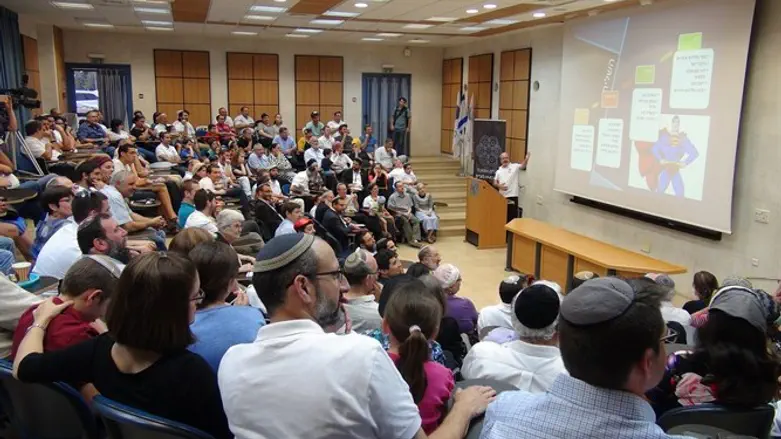
The custom is to read Kohelet on Shabbat Chol Hamoed Succot (see Masechet Sofrim 14:1) which presents a stark and honest introspective view of life and joy. The choice of this Megillah as the one to be recited on Succot is therefore somewhat unusual since Succot is the festival of joy. In fact the Torah writes on three different occasions that we are to be happy during Succot; "and you will be happy on your festival" (Devarim 16:14), "and you shall be very happy" (ibid., 15) and "you shall rejoice before God for seven days" (Vayikra 23:40). Succot is joyful for a number of reasons; it is the conclusion of the period of return and repentance during which we are purified and forgiven for our sins. Succot is also the end of the agricultural year; the Torah does not stipulate that we must rejoice on Pesach since it is the beginning of the harvest and a person does not yet know what the year will yield. The Torah does write on one occasion once that we should be happy on Shavuot (see Devarim 16:11) since this is the end of the wheat and barley harvest. But it is only when the year ends at Succot and the fruit is harvested that a person can look with great satisfaction at all their produce and be happy.
And yet it is on this festival that we are to read the rather depressing book of Kohelet, "vanity of vanities, said Kohelet; vanity of vanities, all is vanity." Everything that we have is hevel, vanity, nothing, meaningless, and so what should we now do with all this harvested fruit and grain?
The whole question of joy and the place of joy in Judaism is a fascinating subject and I would like to share just one source. The Gemara (Berachot 30b) contrasts two verses that both appear in Tehillim; on the one hand the verse states "serve God with fear and rejoice before Him in awe" (Tehillim 2:11) but another verse presents a different approach "serve God with joy and come before Him rejoicing" (Tehillim 100:2). The Gemara tells the following story: Abaye was sitting before his teacher Rabba, and Rabba saw that he was excessively joyful. He said to Abaye: It is written: "Rejoice before Him in awe". Abaye replied "But I am wearing tefillin."
Rabba is disturbed to see his student having too much fun and rebukes him with the verse that limits joy. Abaye has a very original answer; he is wearing tefillin! How does wearing tefillin change this situation? Rashi answers that the tefillin are a proof and testimony that I still remember God's presence and am under the control of my Maker. In other words Abaye knew the limits of joy since he knew that everything comes from God, his donning tefillin was a sign that he recognized who gave him everything.
And that is the message of Kohelet; we must recognize where everything comes from and then our joy has real meaning and significance. This is a very appropriate message for Succot as we take stock of all that we have and look forward to all the blessings of the coming year. We must always wear real and virtual tefillin and maintain a sense of connection with God's blessing.
But I think that we can also read Abaye's answer to mean the opposite as well. Not only must we find God in our joy, but we must find joy in our God. Hashem has created a most beautiful and glorious world, that contains a great range of colors, smells, sights, joys, experiences etc. We have to learn to enjoy these since they come from God. There is a wonderful saying in the Yerushalmi "a person will eventually have to give a reckoning for everything that he saw in this world and did not enjoy" (Nedarim). God created the world for us to enjoy, we have to do so, but do so wisely, not to become gluttons and not to be ascetics, but to find the perfect balance of joy and finding God.
How do we know if our joy is appropriate and does not cross the boundaries of good taste? I heard a wonderful test from the respected psychologist Prof. David Pelcowitz. He said the question is how does one feel the following day? Is one left with a feeling of joy and elation, or do they have regrets and guilt? True joy will leave us feeling satisfied and will remain with us even after the joyful stimulus has ended.
We leave the period of the festivals feeling happy and inspired for the long winter ahead, Kohelet teaches us how to find the true balance which will lead to true happiness.
